 Stories
Stories
March 14, 2021 • 4 min read
Since the war began 10 years ago over 12 million Syrians have been forced to leave their homes to escape the violence. Maaret Tamsrin in Syria’s Idleb province has long been a safe haven for internally displaced people.
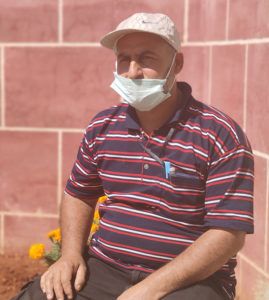
Abdulrahman was for forced to flee his home due to conflict
The ceaseless attacks and the “chaos and harsh conditions of war,” forced Abdulrahman* to abandon his home three years ago. Abdulrahman is among 120,000 people who have sought refuge in Maaret Tamsrin.
Water is life
Despite resource problems the host community in Haranbush have welcomed displaced families with open arms. Reza*, a volunteer teacher from Haranbush, says the lack of drinking water has been the town’s biggest concern. The mountainous terrain had always proven problematic. With public infrastructure devastated by the war, providing clean water for the local community is even more challenging.
The local water station stopped working once damages to the electrical network cut off electricity. The community tried to raise enough funds to fuel the station but economic hardship made this impossible. “This prompted the Local Council to stop pumping water through the network and to start relying on water trucks. The lines became inoperable as a result. The pipes started to decay, including those on the part of the network that supplied my home,” Reza explains.
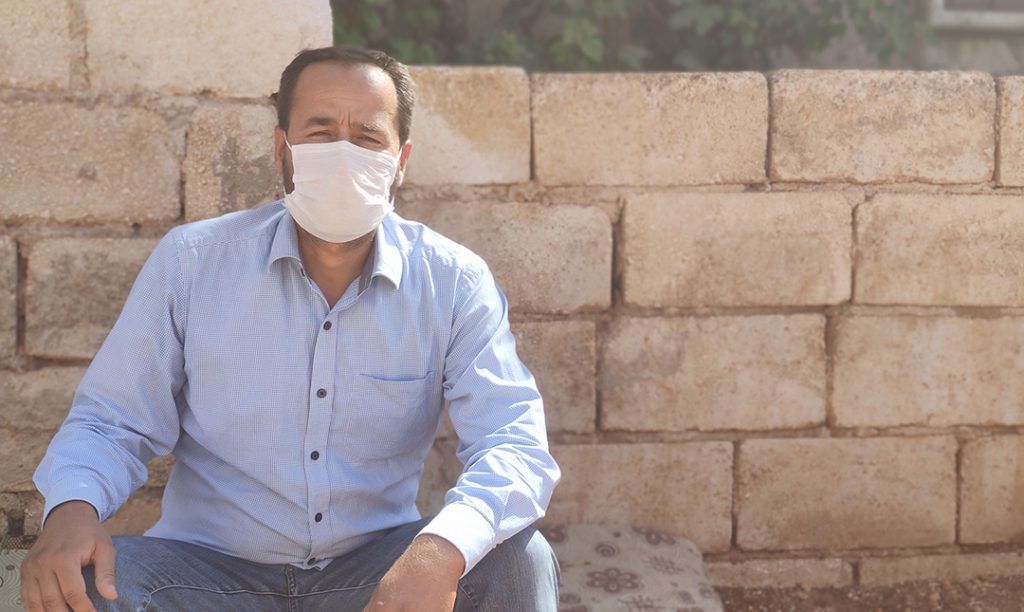
Reza is a volunteer teacher from Haranbush
‘We didn’t know if the water was safe’
In the face of frequent power shortages, many communities in Idleb have turned to unregulated private vendors to meet their water needs. In 2019 45% of the Idleb population were completely reliant on trucks as their only source of water, according to the UN.
This dependence placed a heavy strain on communities. Feras*, a 58-year-old father of eight, says “We had become tied to the tanks. Before GOAL arrived in the area we experienced a suffocating crisis. Economically, psychologically, even socially. Economically, because the price was huge and we couldn’t afford to pay. Psychologically, because the source of the water was unknown. We didn’t know if it was clean. Or safe for drinking and bathing. And socially, because we could no longer help our displaced neighbours in need. Every house in the town supports a displaced family and we have to help them, to provide relief for them.”
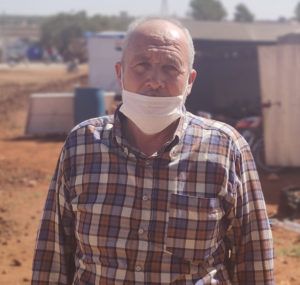
Feras was unable to buy medicine for his children
The economic and social burdens did not end there for Feras. With so much of the family’s income spent on water Reza could no longer afford to buy medicine for his children. A lack of sanitation left his young kids suffering from cutaneous leishmaniasis, a parasitic skin disease. “Once we became reliant of the water from the trucks the spread of diseases transmitted through contaminated water increased. We couldn’t trust the water’s cleanliness and the community lacked basic hygiene.” he explains.
Village returns to life
“The village returned to life after GOAL revived the Haranbush Water Station,” Reza says. With financial assistance from OCHA’s Syria Cross Border Humanitarian Fund, GOAL has been supplying fuel to restart the station’s generator. GOAL staff have also made the necessary repairs after years of neglect. And provided the technical skills to maintain the village’s water network for years to come.
Thanks to the initiative, 90% of the village now have access to clean drinking water. Improved hygiene has reduced illness in the area and is helping the community to fight the spread of Covid-19.
GOAL engineer Ahmed oversaw the operation. “The community desperately needed this emergency support to provide clean drinking water and tackle poor hygiene conditions,” he explains. “15,000 people now have access to free, safe water. We’re seeing the rewards with reduced prevalence of disease such as diarrhea and typhoid.”
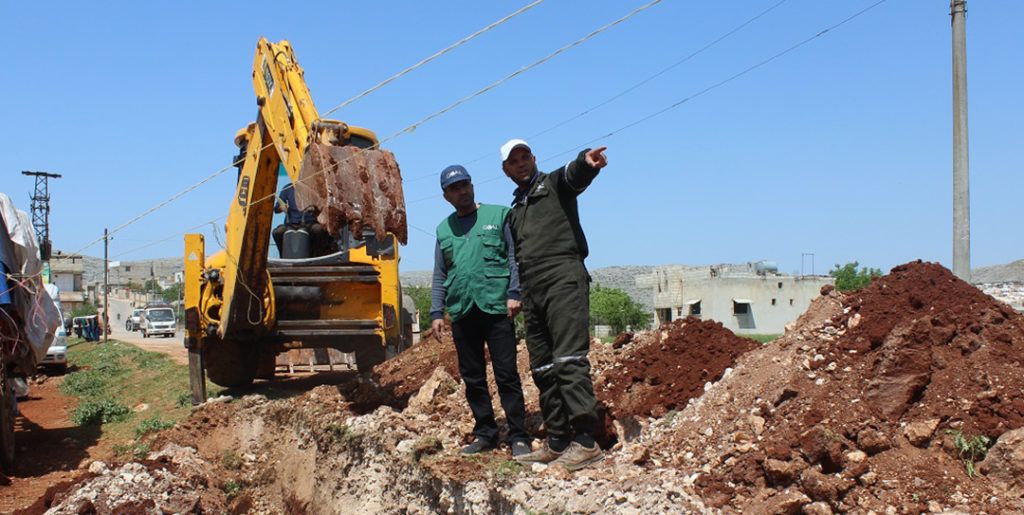
Ahmed oversees the replacement of a pipe at the Haranbush water station water station
Families no longer going to bed hungry
For displaced families in Haranbush the revival of the water network is a huge relief. Abdulrahman’s family can now afford to cover school expenses. They no longer have to worry about going to bed hungry. “Finally we got rid of the water trucking nightmare,” he says. “Buying water from the truck meant going without food or eating one meal per day at best.”
For Mahdi*, a 60-year-old displaced teacher from the village of Kafr Aweid, the support provided to his children and grandchildren is humbling. “I want to thank the community and the workers of Haranbush Water Station. They have made us feel truly welcome. We are so grateful for for their service.”
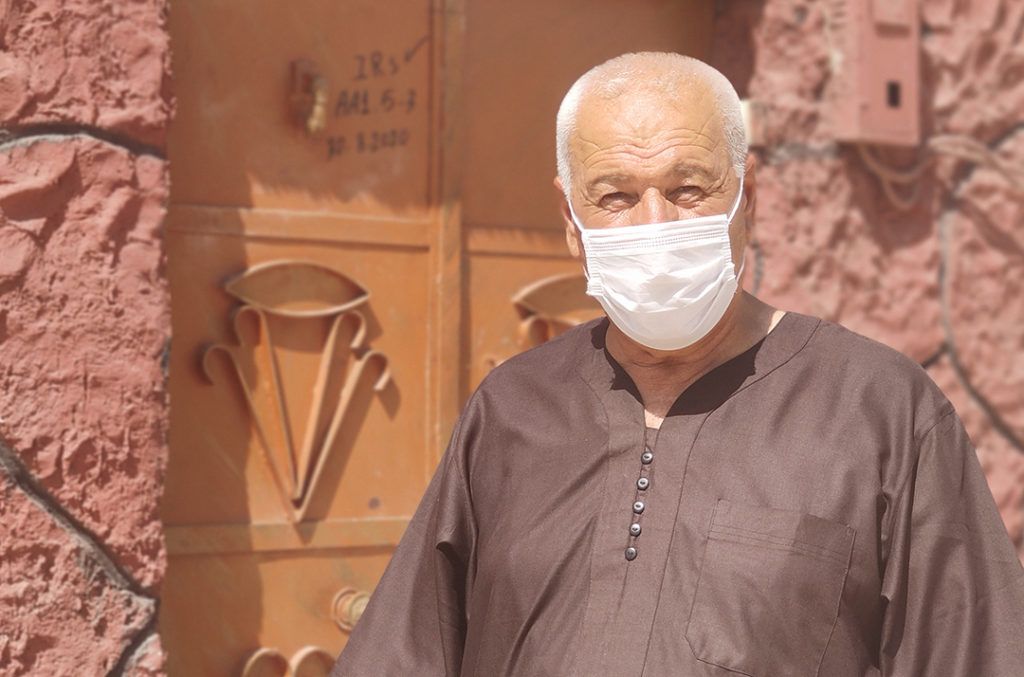
Mahdi is thankful for the return of the water station
You can help families like Mahdi’s and support GOAL’s work in Syria with a donation today.
*Some names in this story were changed in order to protect beneficiaries’ identities.
